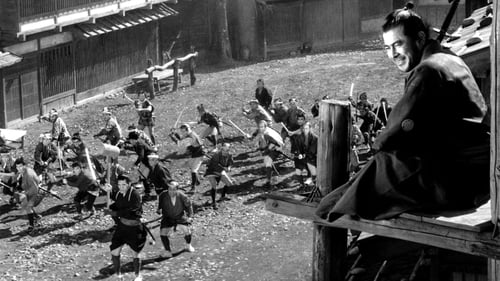
Sound Recordist
떠돌이 무사가 어느 마을의 여인숙에 들린다. 그곳은 두 패로 나뉜 악인의 무리가 세력다툼을 벌여 유령 마을처럼 되어버린 야도바 마을. 무사는 악인의 무리 중에서 돈을 많이 주는 쪽인 비단을 파는 사람들의 요짐보가 되어 일을 해준다. 하지만 술을 파는 무리 중 한 명의 아들인 우노스케가 권총을 갖고 마을로 들어오며 상황은 급변한다. 우노스케는 자신이 속한 파와 적대적인 관계에 있는 무리들을 무차별적으로 죽인다. 운 좋게도 요짐보는 마을 여관주인의 도움으로 마을 밖으로 도망쳐 근처에 있는 절 가까이 숨어 있는다. 하지만 얼마 후 여관주인이 우노스케에 의해 납치당했다는 사실을 알고 다시 마을로 들어오는데...

Sound Recordist
Gang of robbers quarrel about the loot, but when one of them gets killed, his younger brother seeks them out to ice them one by one.

Sound Recordist
An Ishiro Honda film.

Sound Recordist
May Kawaguchi is a famous Japanese fashion designer. Returning to Tokyo from her home in New York, she travels incognito with a tour group, in hopes of having a quiet vacation without being noticed. But she is spotted and the press has a field-day with the returning celebrity. Her hopes of rest shattered, she agrees to put on a large-scale fashion show.
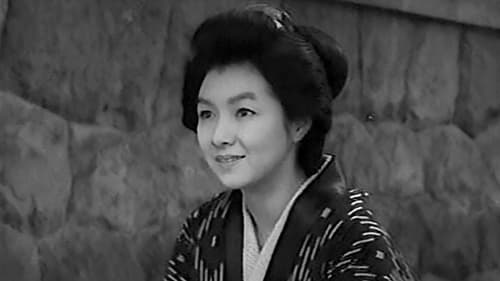
Sound Recordist
어릴 때부터 생업전선에 뛰어든 뒤 몇 명의 남자들 사이에서 험난한 시간을 보낸 오시마의 삶을 그린 작품. 19살에 결혼한 오시마는 열심히 일하면서 행복하게 살려 하지만 바람기 많은 남편 때문에 마음 고생을 한다. 여기에 불운한 사고까지 겹치면서 오시마는 이혼을 하고 다른 마을로 팔려간다. 하지만 그녀는 끝까지 좌절하지 않고 계속해서 희망을 찾는다.
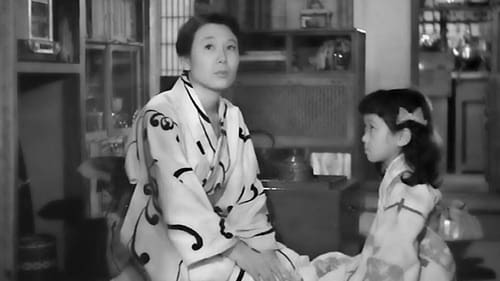
Sound Recordist
츠타가 운영하는 야나기바시의 기생집. 어느 날, 남편과 아들을 잃은 리카가 직업소개소를 통해 일자리를 구하러 찾아온다. 츠타는 리카가 이름을 바꾸면 일을 할 수 있게 해주겠다고 하고, 리카는 이름을 ‘오하루’로 바꾼 후 식모살이를 시작한다. 힘들어도 온갖 허드렛일을 열심히 하던 오하루는 시장을 보러 갔다가 츠타의 기생집이 빚더미에 눌려 있음을 알게 된다. 쇠락한 기생집에서 생활하는 게이샤들의 애환을 당대 최고의 여배우들이 멋지게 연기해낸 작품이다. (2011년 시네마테크부산 - 나루세 미키오 특별전)

Sound
Story about a poor Japanese woman living near an American army base who resorts to prostitution.
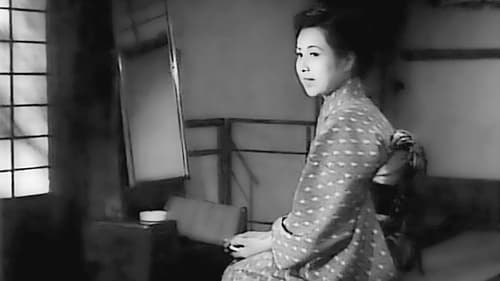
Sound Recordist
결혼한 지 십 년이 지난 미호코와 나카가와 부부는 서로에게 무뚝뚝한 사이다. 그런데 최근 나카가와는 밝고 쾌활한 성격을 가진 비서 후사코와 많은 시간을 보낸다. 그런데 후사코가 고향에서 나카가와에게 보낸 엽서를 미호코가 먼저 발견하고 남편을 의심하기 시작하면서 일이 커진다. , 에 이은 ‘아내 이야기 3부작’ 중 마지막 작품.

Sound Recordist

Sound Recordist
Jidai-geki by Kiyoshi Saeki

Sound Recordist
A high-born woman named Okuni travels around the country with Gohei, a samurai retainer who is in service to her. They are in search of Tomonojo, who has killed the man who was Okuni’s husband and Gohei’s master, and they cannot return to their lord’s home until they have fulfilled their duty of hunting down and killing Tomonojo.

Sound Recordist
Melodrama by Kon Ichikawa

Sound Recordist
Though recognized worldwide almost exclusively for his colorful kaiju fare, director Ishirō Honda (Godzilla, Rodan, Mothra) was a natural humanist with a particular understanding of the relationship between people and their social environs. His debut fiction feature, The Blue Pearl (Aoi Shinju) – virtually unseen in the west until now – depicts the melodramatic, but keenly-observed interplay between a young man from Tokyo and two ama (pearl divers; literally “women of the sea”) in a superstitious coastal town. Though raised within the same tradition-bound crucible, the two women – Noe and Riu – are portrayed as diametric opposites; the former meek but affectionate, the latter strong-willed but jaded by a tryst with metropolitan life. Nonetheless, Honda provides equal weight to their desires and their ambitions to break free from the social mold imposed upon them from birth.
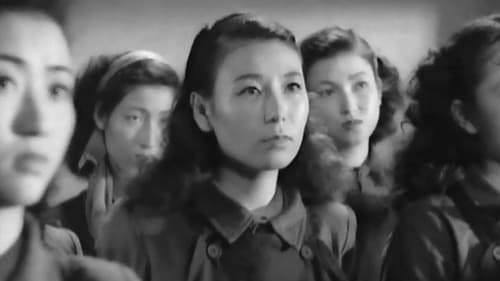
Sound Editor
The critical establishment was clearly not prepared to accept a woman's prison film featuring former prostitutes recovering from venereal diseases, unwanted pregnancies, and estranged lovers. With its cat fights, hysterical tantrums, film noir lighting, and dramatic music, White Beast is indicative of the new influences of the Hollywood psychological thriller on Naruse. Caged (John Cromwell, 1950) initiated a cycle of women's prison movies in the United States that may or may not have been shown in Japan, but the stylistics of White Beast draw on the same paranoid woman's films and film noir conventions that preceded the American cycle.

Sound Recordist
The Angry Street includes a great deal of location shooting in the rebuilt city, including downtown streets, residential neighborhoods, the campus of the University of Tokyo, and the high life of jazzy dance halls. Sudo (Hara Yasumi) and Mori (Uno Jukichi) are two university students who make money by picking up rich girls in dance clubs and conning them into giving them cash. Mori is the brains of the operation, and Sudo is the suave dancer who picks up the girls. Over the course of the film, Sudo becomes involved with three different girls and is drawn into the gangster milieu, which he seems unable to resist even though he is responsible for his mother, grandmother, and sister, Masako (Wakayama Setsuko). In this world of bad boys and girls, Masako is the pillar of strength and moral virtue who finally enables Mori to straighten out.

Sound

Sound Recordist
Adaptation of a novel by Nobuko Yoshiya that was serialized in "Shufu no tomo" between 1939 and 1940.

Sound Recordist
Twenty-year-old Yoshiko (Setsuko Hara) and her younger sister Asako (Yōko Yaguchi) struggle to accept changes in their home during the preparations of their widowed father's wedding to his chosen bride, Maki Tsuneko (Sadako Sawamura), who's anxious about her conduct as the bride.











